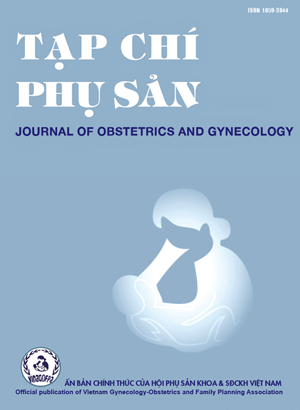Abstract
The incidence of thyrotoxicosis in pregnant women is about 0.1-1% (0,4% clinical and 0,65% subclinical) and in majority is a result of Graves’ disease. The hyperthyroidism interfere with course and outcome of pregnancy and the most often fetal complication of mothers hyperthyroidism is a growth retardation. On the contrary pregnancy by itself is state whichpromotes the thyroid dysfunction. Because of human chorionic gonadotropin thyrotropin activity some women with hyperemesis gravidarum develop transient thyrotoxicosis and it is important to distinguish gestational transient thyrotoxicosis from Graves’ disease. The diagnosis of hyperthyroidism in pregnancy requires careful analysis of clinical and laboratory data. The thyroid function tests should be assessed using pregnancy specific reference values. Poorly treated or untreated maternal overt hyperthyroidism may affect pregnancy outcome. Fetal and neonatal hypo- or hyperthyroidism and neonatal central hypothyroidism may complete health issues during intrauterine and neonatal periods. Antithyroid drugs are the main therapy for maternal hyperthyroidism. Both methimazole (MMI) and propylthiouracil (PTU) may be used during pregnancy; however, PTU is preferred in the first trimester and should be replaced by MMI after this trimester. Choanal and esophageal atresia of fetus in MMI-treated and maternal hepatotoxicity in PTU-treated pregnancies are of utmost concern. Maintaining free T4 concentration in the upper one third of each trimester specific reference interval denotes success of therapy. The first line therapy of thyrotoxicosis is medical treatment with use of antithyroid drugs supplemented if necessary with levothyroxine in fetal hyperthyroism. Other treatment modalities should be used only exceptionally. In women with elevated antithyroid antibodies titer or undergoing thionamides therapy it is necessary to perform fetal sonography to determine fetal thyroid status. Management of hyperthyroidism during pregnancy requires special considerations and should be carefully implemented to avoid any adverse effects on the mother, fetus and neonate.Tạp chí sẽ lưu giữ bản quyền phân phối, giao dịch đối với tất cả các bản thảo, bản toàn văn của bài báo đăng trên hệ thống. Mọi hình thức chia sẽ, trao đổi, giao dịch các sản phẩm thuộc hệ thống xuất bản vjog.vn mà không được sự đồng ý của chúng tôi sẽ là vi phạm bản quyền
Downloads
Download data is not yet available.

